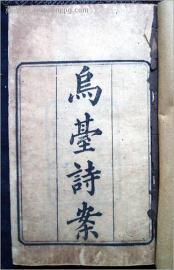
| Around 2,700 of Su Song's poems have survived, along with 800 written letters. Su Dongpo excelled in the shi, ci and fu forms of poetry, as well as prose, calligraphy and painting. Some of his notable poems include the First and Second Chibifu (The Red Cliffs, written during his first exile), Nian Nu Jiao: Chibi Huai Gu (Remembering Chibi, to the tune of Nian Nu Jiao) and Shui diao ge tou (Remembering Su Che on the Mid-Autumn Festival). The two former poems were inspired by the 3rd century naval battle of the Three Kingdoms era, the Battle of Chibi in the year 208. The bulk of his poems are in the shi style, but his poetic fame rests largely on his 350 ci style poems. Su Shi also founded the Haofang School, which cultivated an attitude of heroic abandon. |
In both his written works and his visual art, he combined spontaneity, objectivity and vivid descriptions of natural phenomena. Su Shi wrote essays as well, many of which are on politics and governance, including his Liuhoulun. |